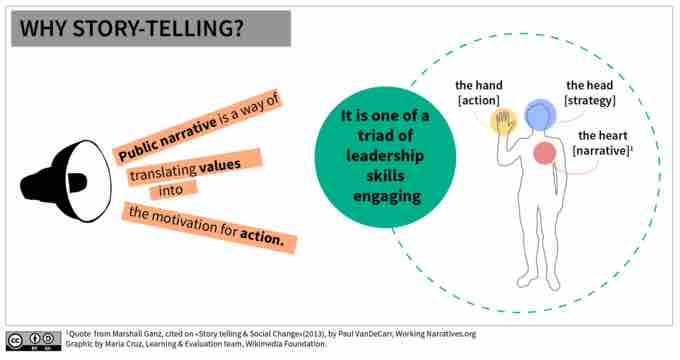Why Storytelling Matters More Than You Think
Leaders
Storytelling is an incredibly powerful skill set, both in regards to effective rhetoric and presentation and leadership. The ability to craft ideas such as strategy, tactics, consumer needs, core competencies, and other concepts into a speech, presentation, or group discussion can create a strong sense of vision, purpose, and unity. It is argued by some leaders in managerial thought that the ability to tell a story is the most important skill a leader can have in the 21st century.
Community Management
Aside from the leaderships and presentation frame, telling a story is the core skill set that enables a powerful presence on social media and other digital distributions of the company culture, brand, and value proposition. Storytelling is a way to relate to prospective users and build a powerful community, which is an invaluable asset in the success of any and all business ventures.
Entrepreneurs
It is also worth noting that start-up ventures require a strong sense of story. When pursuing investment, the entrepreneur must take the concept they are selling and spin it into a vision worthy of taking a risk on. Look no further than Kickstarter campaigns to see how critical it is to build a narrative, and find people who share your passion. This is the key source of enthusiasm and capital that enables start up companies to move forward.

Why Story-Telling?
How To Tell A Story
Depending on the situation, there may be a wide variety of relevant approaches. Delivering a specialized presentation on how to integrate a software solution will undoubtedly require a different tactic than building a twitter community for a new soda brand. That being said, there are a few aspects to any good story that can help us effectively tell a tale:
- Engage the audience – To pull them into your story, you must involve them. Ask a challenging question, or raise a trending topic. Find something in their world, and use that as your starting point. Relevance is key.
- Set the scene – All stories need context, and context will act as a key counterpoint to what unfolds. Pull them into the world the story takes place in and you'll have their full attention.
- It's all about tension – Conflict, debate, struggle, emotions, find what it is about the story that creates a sense of tension and provide emphasis. This feeling of conflict has been central to storytelling for all of human history!
- Stay focused on the goal – Stories are anecdotes to communicate concepts. Stay focused on what it is within the story that is important, and relevant to the discussion you are trying to have. Keep the story grounded through the occasional reminder of what it is you're really trying to say.
- Stay logical – Stories are like puzzles, the pieces need to fit. Keep things organized and maintain a sense of structure. Losing the thread will result in a story evaporating before your eyes.
- End with a punch – The conclusion is your chance to make a point with emphasis (!). Make sure the flow of your story results in a powerful and punchy conclusion that truly speaks to the audience.